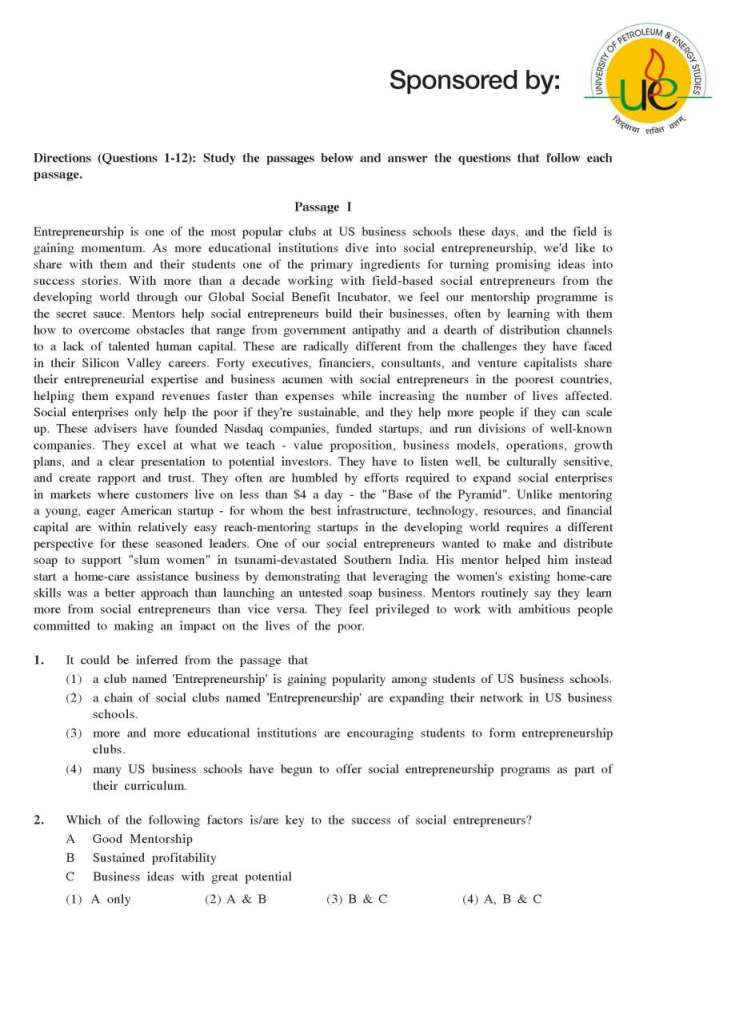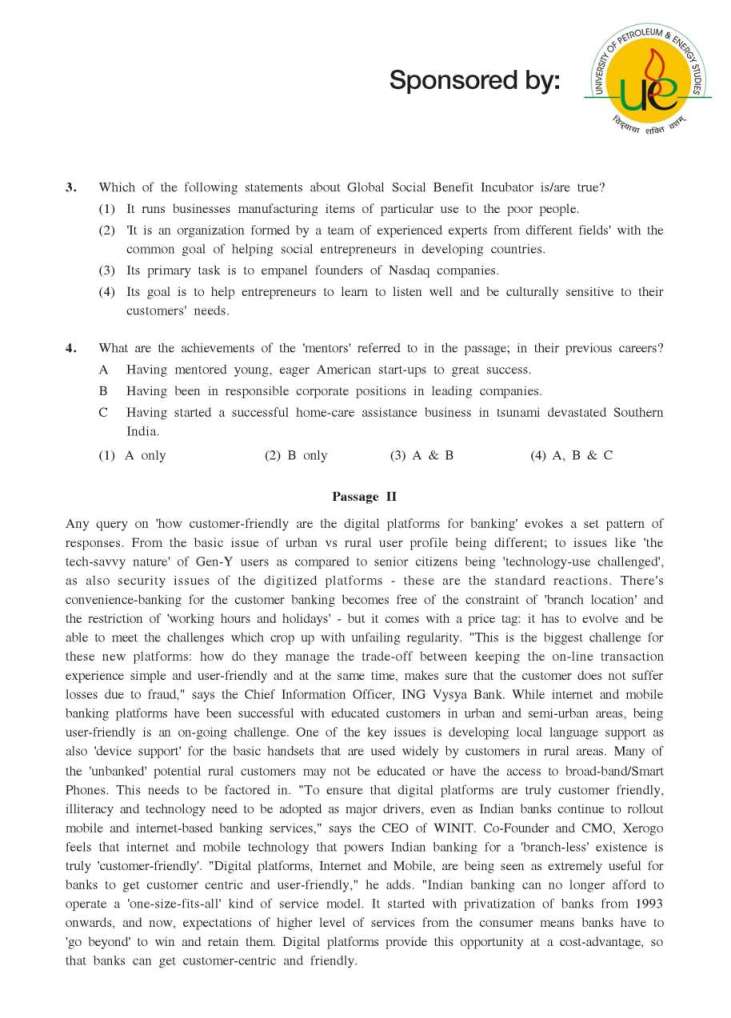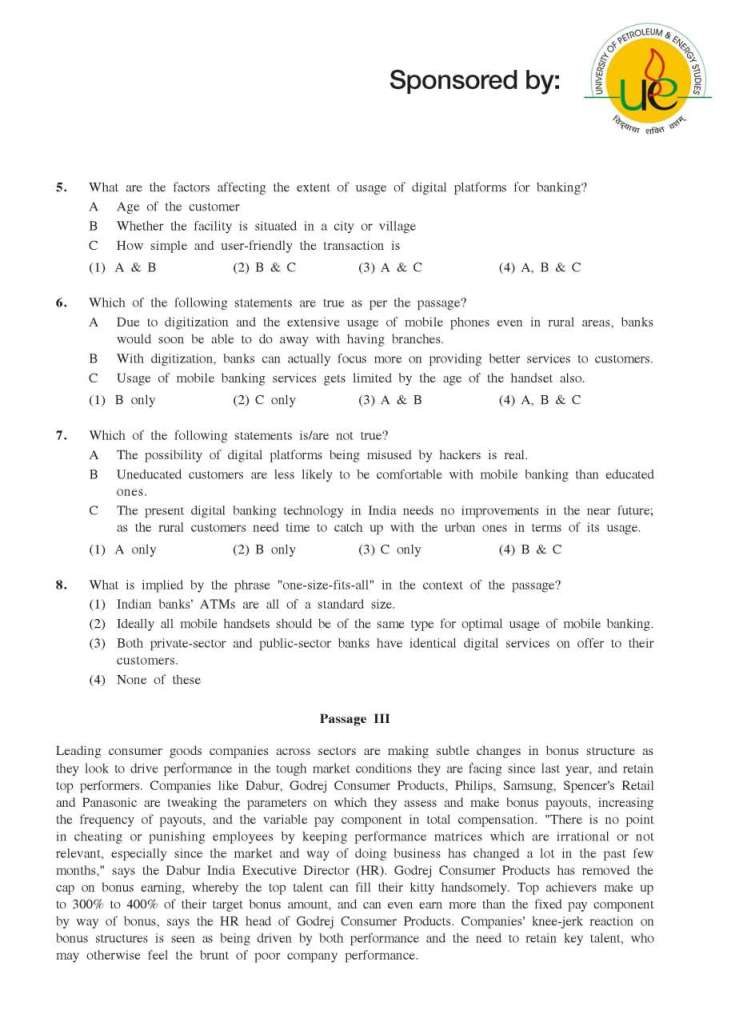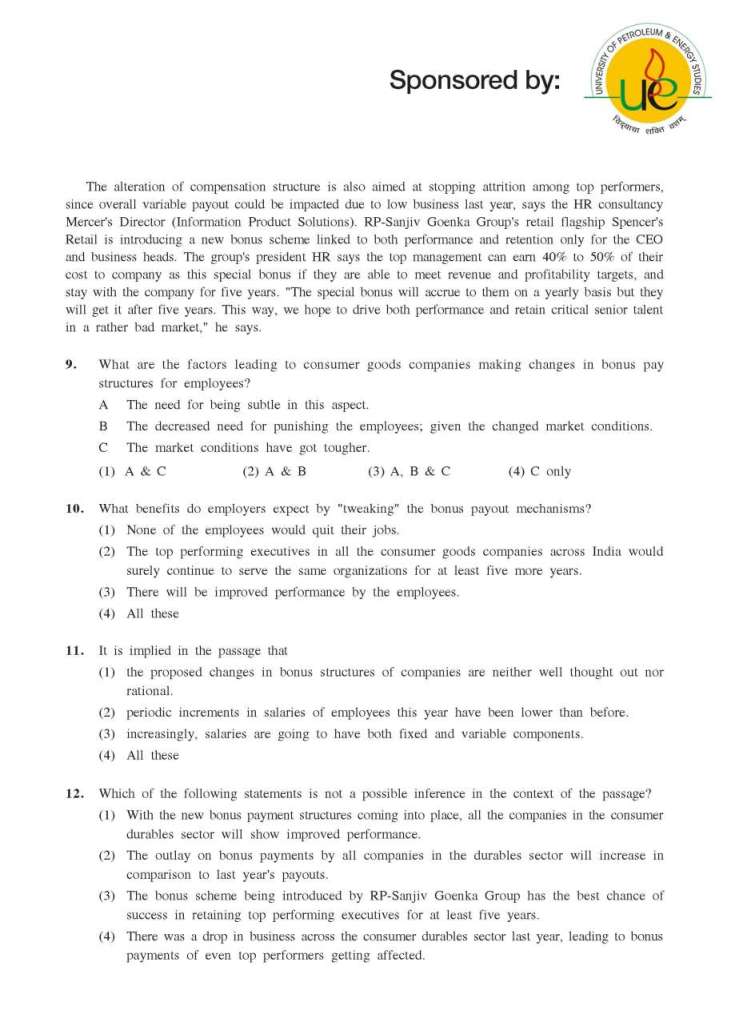|
#3
28th January 2020, 09:56 PM
| |||
| |||
| Re: UPES MET Sample Question
The previous year question paper for University of Petroleum and Energy Studies Management Entrance Test (UPESMET) is as follows: Directions (Questions 1-12): Study the passages below and answer the questions that follow each passage. Passage I Entrepreneurship is one of the most popular clubs at US business schools these days, and the field is gaining momentum. As more educational institutions dive into social entrepreneurship, we'd like to share with them and their students one of the primary ingredients for turning promising ideas into success stories. With more than a decade working with field-based social entrepreneurs from the developing world through our Global Social Benefit Incubator, we feel our mentorship programme is the secret sauce. Mentors help social entrepreneurs build their businesses, often by learning with them how to overcome obstacles that range from government antipathy and a dearth of distribution channels to a lack of talented human capital. These are radically different from the challenges they have faced in their Silicon Valley careers. Forty executives, financiers, consultants, and venture capitalists share their entrepreneurial expertise and business acumen with social entrepreneurs in the poorest countries, helping them expand revenues faster than expenses while increasing the number of lives affected. Social enterprises only help the poor if they're sustainable, and they help more people if they can scale up. These advisers have founded Nasdaq companies, funded startups, and run divisions of well-known companies. They excel at what we teach - value proposition, business models, operations, growth plans, and a clear presentation to potential investors. They have to listen well, be culturally sensitive, and create rapport and trust. They often are humbled by efforts required to expand social enterprises in markets where customers live on less than $4 a day - the "Base of the Pyramid". Unlike mentoring a young, eager American startup - for whom the best infrastructure, technology, resources, and financial capital are within relatively easy reach-mentoring startups in the developing world requires a different perspective for these seasoned leaders. One of our social entrepreneurs wanted to make and distribute soap to support "slum women" in tsunami-devastated Southern India. His mentor helped him instead start a home-care assistance business by demonstrating that leveraging the women's existing home-care skills was a better approach than launching an untested soap business. Mentors routinely say they learn more from social entrepreneurs than vice versa. They feel privileged to work with ambitious people committed to making an impact on the lives of the poor. 1. It could be inferred from the passage that (1) a club named 'Entrepreneurship' is gaining popularity among students of US business schools. (2) a chain of social clubs named 'Entrepreneurship' are expanding their network in US business schools. (3) more and more educational institutions are encouraging students to form entrepreneurship clubs. (4) many US business schools have begun to offer social entrepreneurship programs as part of their curriculum. 2. Which of the following factors is/are key to the success of social entrepreneurs? A Good Mentorship B Sustained profitability C Business ideas with great potential (1) A only (2) A & B (3) B & C (4) A, B & C 3. Which of the following statements about Global Social Benefit Incubator is/are true? (1) It runs businesses manufacturing items of particular use to the poor people. (2) 'It is an organization formed by a team of experienced experts from different fields' with the common goal of helping social entrepreneurs in developing countries. (3) Its primary task is to empanel founders of Nasdaq companies. (4) Its goal is to help entrepreneurs to learn to listen well and be culturally sensitive to their customers' needs. 4. What are the achievements of the 'mentors' referred to in the passage; in their previous careers? A Having mentored young, eager American start-ups to great success. B Having been in responsible corporate positions in leading companies. C Having started a successful home-care assistance business in tsunami devastated Southern India. (1) A only (2) B only (3) A & B (4) A, B & C Question Paper for University of Petroleum and Energy Studies Management Entrance Test (UPESMET)     |